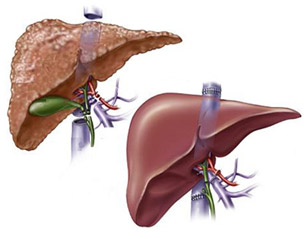An insight into pediatric liver transplant
Liver Transplant in Children is generally recommended if they have highly severe liver problems, and would die without a new liver. Biliary atresia is the most common liver disease in children who require a transplant. This is a rare liver disease, and it occurs in newborns. A liver transplant might also be a Non alcoholic fatty liver treatment for children. Non-alcoholic fatty liver disease (NAFLD) is among the most common causes of chronic liver disease in children. The number of children affected by fatty liver disease has considerably gone up in recent years, the rise in childhood obesity being one of the key reasons for it. Risk factors for non-alcoholic fatty liver disease include, Obesity, Insulin resistance, pre-diabetes or type 2 diabetes and High cholesterol and high triglycerides.
A liver transplant is a major surgery, which is done to
replace a diseased liver with a healthy liver from a donor. After a pediatric
liver transplant surgery is completed, the child would go to the intensive care
unit (ICU) to be watched closely. The length of time a child will spend in the
ICU will vary, depending on their condition. More details of pediatric Liver
transplant surgery in India can be found on the web.

Comments
Post a Comment